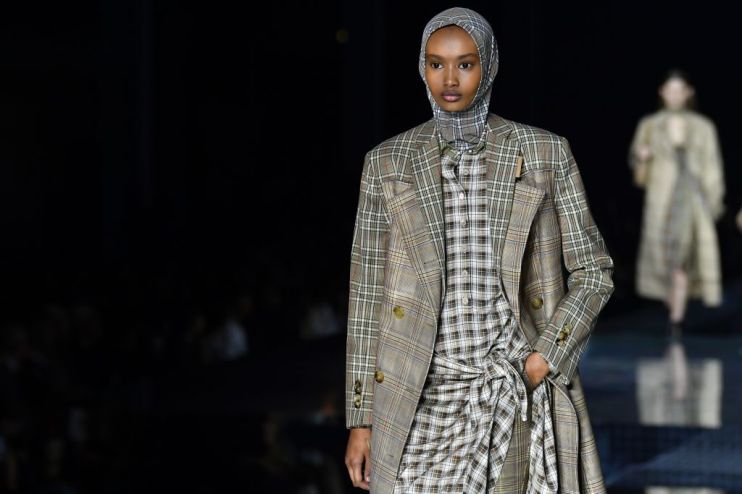Burberry shares sink as it warns of ‘continued coronavirus impact’

Burberry shares sank more than seven per cent this morning as sales slumped 45 per cent during lockdown and the group warned that it will “take time” to recover from the severe impact of coronavirus.
The British fashion staple said it sees no immediate end in sight to dented sales, as the pandemic continues to prevent vital tourism spending and hamper activity in its stores.
Burberry said it expects its sales for the four months to September, “to continue to be materially impacted by the pandemic”.
“Tourist flows are likely to remain negligible,” the group said in a statement today. “Store operations are continuing to face significant headwinds, with some remaining closed and operating with reduced trading hours.”
Shares were down 7.2 per cent to 1,445p at 10am.
The results
Group revenue slumped 45 per cent during the four months to 27 June to £257m from £498m in the same period last year.
Sales in Europe, the Middle East and Africa plunged 75 per cent during the period, as lockdown measures and the closure of borders prevented vital high street footfall. Burberry sales June sales improved slightly but continued to be dented from reduced tourism.
The company saw a 70 per cent plunge in sales in the US, Canada and South America, as later lockdown measures bit into vital summer sales towards the end of the quarter.
Asia Pacific sales were less impacted during the coronavirus crisis, but still took a 10 per cent hit during the quarter. Burberry said sales in the region have now returned to growth, with sales in China seeing a 30 per cent increase in June.
First half revenue sales in Burberry’s wholesale business were running around 50 per cent lower during the quarter than the same period last year.
Why it’s interesting
Burberry said it saw a slump in sales for all its products, as appetite for luxury goods dwindled during the pandemic and global customers were forced to stay at home.
Michael Hewson, chief market analyst at CMC Markets, said the results were “a little disappointing but not altogether surprising”, given that the luxury fashion retailer “has had to contend with a number of challenges over the last 12 months from the disruption of its Hong Kong business as well as the fallout from weaker Chinese demand and the spread of coronavirus”.
The results come after the group in May reported a 57 per cent plunge in operating profit for the year to £189m, after revenues were hit hard by ongoing protests in Hong Kong.
The coronavirus crisis marked the start of the third year of Burberry’s business transformation, in which the brand attempts to overhaul its digital and social media presence for a younger audience.
Online full price sales grew double digits in the quarter, as the group tried to innovate with new features such as its B-Surf online game. The group is also preparing to introduce three new business units within its ready-to-wear, accessories and shoe departments, as Burberry attempts to lure new customers around the world.
Burberry said: “Despite the extremely difficult backdrop resulting from a global pandemic, we have made good progress in the quarter focusing on strengthening our brand, localising our plans by market, leveraging our digital platforms and enhancing our focus on product.
The group last month said it would uproot its salary, bonus structure and pension policy for the year in response to the coronavirus crisis.
In a signal that Burberry may wind down some of its bricks-and-mortar space around the world, the group said it is “proposing to further streamline our office-based functions and improve our retail efficiency in certain geographies outside the UK”. The move may result in reduction in headcount in its London office.
It expects these closures to land a £45m restructuring charge, but deliver savings of around £35m in 2021, as the group seeks to shore up its balance sheet and cut costs by £140m over the next few years.
What Marco Gobbetti said
Marco Gobbetti, chief executive of Burberry, said:
“Sales were severely impacted by the drop in luxury demand from Covid-19 and we expect it will take time to return to pre-crisis levels with the resumption of overseas travel.
“We are encouraged by the improving trends in all regions and the promising exit rate for June. We saw an excellent response to new product launches in recovering economies as well as online.
“Demand for leather goods was particularly strong in Mainland China and Korea, bringing new, younger luxury customers to the brand. As we enter the second phase of our strategy, we are sharpening our focus on product and making other organisational changes to increase our agility and generate structural savings that we will be able to reinvest into consumer-facing activities to further strengthen our luxury positioning.”
Before the Open: Get the jump on the markets with our early morning newsletter